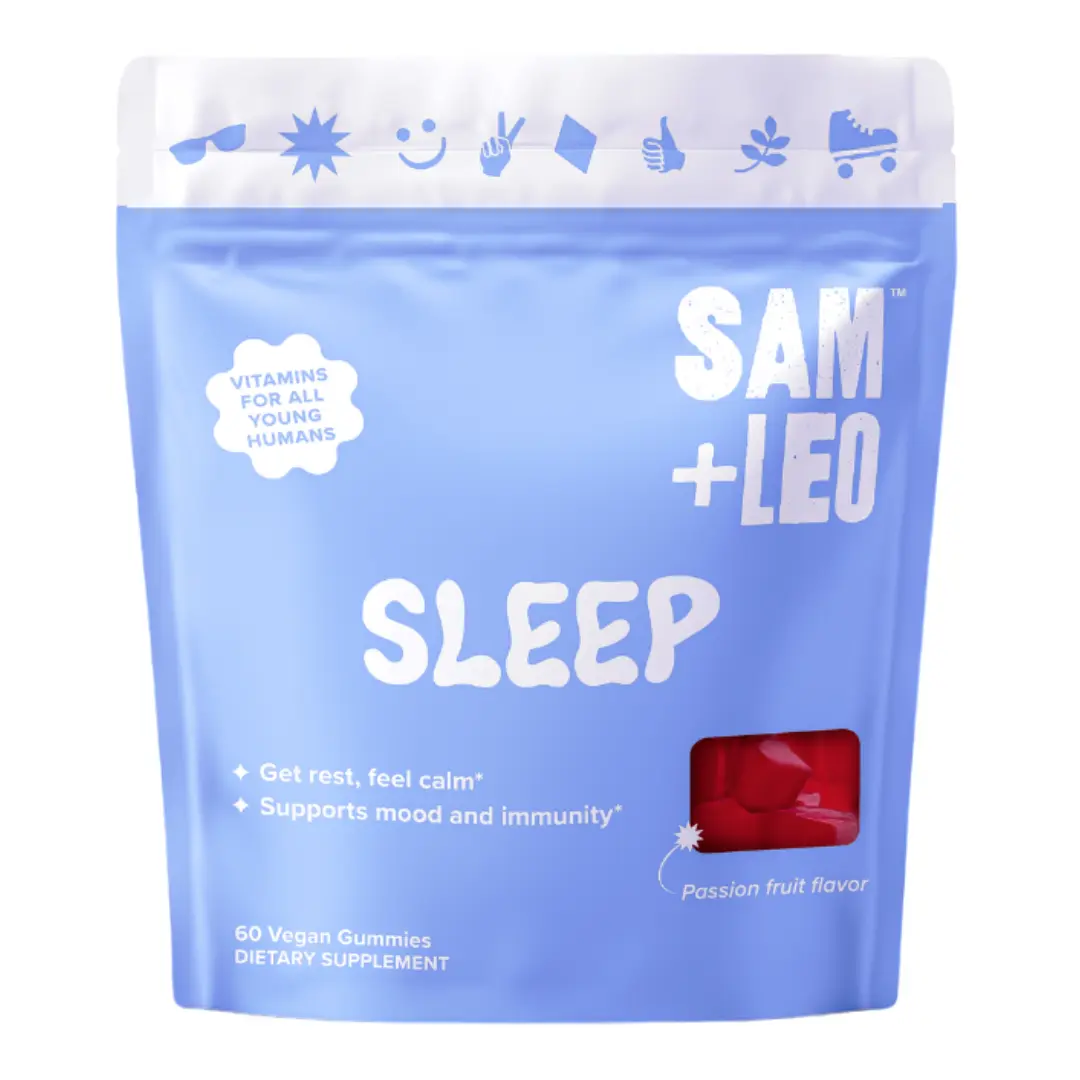
Can Kids Benefit from Sleep Support Vitamins?
In today’s fast-paced world, many parents are concerned about their children’s sleep patterns. With the increasing popularity of sleep support vitamins, you might wonder if these supplements can actually benefit children. This FAQ blog will address some common questions and concerns regarding sleep support vitamins for kids.
What Are Sleep Support Vitamins?
Sleep support vitamins typically include ingredients like melatonin, magnesium, and certain herbal extracts known to promote relaxation and better sleep. They are designed to help improve sleep quality and duration.
These vitamins work by addressing nutritional deficiencies that may impact a child’s ability to sleep soundly. For example, magnesium plays an essential role in the functioning of the nervous system and the production of the hormone melatonin, which regulates sleep-wake cycles. Similarly, vitamins such as B6 and B12 help produce neurotransmitters that promote relaxation and sleep.
In addition to vitamins and minerals, some sleep support supplements include herbal extracts like chamomile and valerian root known for their calming properties. These ingredients can provide a gentle nudge towards better sleep by calming the mind and body, making it easier for kids to wind down and fall asleep.
Are These Vitamins Safe for Kids?
Safety is always a top priority. Generally, some sleep support vitamins can be safe for children when used correctly and under the guidance of a healthcare provider. However, it’s important to read labels carefully and understand that not all supplements are created equally.
Parents should be cautious about over-the-counter supplements and ensure they are choosing high-quality products specifically formulated for children. It’s essential to avoid supplements with unnecessary additives or those not backed by scientific research. Consulting with a pediatrician before introducing any new vitamins into your child’s routine is a crucial step to ensure both safety and efficacy.
Moreover, some sleep vitamins might interact with other medications your child might be taking. Therefore, discussing it thoroughly with a healthcare provider is imperative to prevent adverse reactions. The healthcare professional can offer personalized advice and possibly recommend specific brands that have been tested for safety and effectiveness in children.
One important aspect to consider is that while vitamins and supplements can be beneficial, they are not a replacement for a balanced diet. Essential nutrients should ideally come from a varied diet rich in fruits, vegetables, and lean proteins. Supplements can fill in the gaps but shouldn’t replace good eating habits.
When Should Sleep Support Vitamins Be Considered?
Parents might consider sleep support vitamins if their child is experiencing consistent sleep difficulties that impact their daily functioning. However, these should not be the first approach; natural sleep hygiene practices should be tried initially.
Persistent sleep issues may signal underlying deficiencies or imbalances that need to be addressed. For instance, if attempts to create a supportive sleep environment and routine haven’t been successful, it might be time to explore whether their nutrient intake is adequate. A healthcare professional can help determine if a supplement might be suitable.
It should be noted that vitamins should be a part of a comprehensive approach that includes examining lifestyle factors such as diet, exercise, and screen time. Excessive screen exposure, especially close to bedtime, can interfere with the natural production of melatonin, making it difficult for kids to fall asleep. Limiting screen time and encouraging physical activity during the day can complement the use of sleep support vitamins.
The consideration should also extend to specific situations like travel, where time zone changes can disrupt sleep patterns. In such cases, melatonin supplements can be useful for re-aligning the body’s internal clock. Similarly, during high-stress periods like exams, additional vitamin support might be needed to cope with increased demands on the body.
What Are the Potential Benefits?
Benefits can include improved sleep quality, reduced time to fall asleep, and longer sleep duration. Proper sleep can support better overall health, mood, concentration, and growth, which are essential for children’s development.
Studies have shown that sleep support vitamins, particularly melatonin, can significantly reduce the time it takes for children to fall asleep. This is particularly beneficial for kids who experience delayed sleep phase syndrome or other circadian rhythm sleep disorders.
Improving sleep quality through vitamins can also have a positive impact on a child’s daily life. Quality sleep is crucial for cognitive functions such as memory, problem-solving, and attention. Better sleep can result in improved school performance and reduced behavioral issues, as a well-rested child is less likely to be irritable or distracted.
Furthermore, a good night’s sleep supports physical growth and development. Growth hormone, essential for development in children, is primarily secreted during deep sleep stages. Therefore, ensuring that children get sufficient restful sleep is vital for their physical health and well-being.
Emotional health is another area that benefits from better sleep. Children who sleep well are better equipped to manage their emotions and stress. This creates a positive cycle where reduced anxiety leads to better sleep, which in turn helps manage stress and enhances mental health.
Are There Any Side Effects?
Possible side effects may include dizziness, headaches, or daytime drowsiness. Each child may react differently, and it’s important to monitor any adverse effects and consult a healthcare professional if any concerning symptoms arise.
Melatonin, one of the most common ingredients in sleep support vitamins, is generally considered safe for short-term use, but prolonged use may potentially lead to hormonal changes. There is still limited research on the long-term effects of melatonin in children, thus stressing the importance of professional guidance.
Some children might experience digestive disturbances or allergic reactions to certain ingredients in sleep support vitamins. It’s essential to be vigilant about any changes in behavior or physical well-being following the introduction of a new supplement and to stop usage immediately if severe reactions occur.
To avoid potential interactions, it’s also crucial to share with your child’s doctor a complete list of all vitamins, herbal supplements, and medications your child is currently taking. This can help prevent adverse effects from occurring due to incompatible combinations.
How to Choose the Right Supplement?
Selecting the right supplement involves checking for quality, researching reputable brands, and seeking products specifically formulated for children. Consulting with a healthcare provider is imperative to ensure the chosen supplement is appropriate for your child’s needs.
When choosing a sleep support vitamin, look for products that have been tested for safety and efficacy. High-quality supplements should have clear labeling with information on recommended dosages, ingredients, and potential allergens. Ensure the supplements are free from artificial colors, sweeteners, and unnecessary fillers.
It’s also beneficial to select brands that have been approved by third-party labs or have certifications like GMP (Good Manufacturing Practice) to ensure the products meet high safety and quality standards. You can find some trustworthy options discussed in our guide on natural sleep support vitamins for young minds.
Parents should seek out supplements that are designed for children, which usually comes with child-friendly flavors and forms like gummies. Look for brands that offer transparent ingredient lists and the exact amounts of key nutrients included. Brands like SAM+LEO provide well-designed products developed with a focus on children’s health.
Lastly, take into consideration any specific dietary restrictions your child may have. There are many options available, including gluten-free, dairy-free, and vegan supplements, which are suitable for children with certain allergies or dietary preferences.
Natural Alternatives to Consider
Before opting for supplements, consider natural alternatives like establishing a regular bedtime routine, creating a calming sleep environment, limiting screen time before bed, and ensuring physical activity during the day. These practices can greatly enhance sleep quality without the need for supplements.
A consistent bedtime routine signals the body that it is time to wind down. Activities such as taking a warm bath, reading a bedtime story, or performing relaxation exercises like deep breathing can help prepare the mind and body for sleep. Dim the lights and maintain a quiet atmosphere to create a calming environment conducive to sleep.
Reducing screen time, particularly in the hours leading up to bedtime, is vital. The blue light emitted from screens can disrupt the natural production of melatonin, making it harder for children to fall asleep. Encourage alternative activities like reading, drawing, or playing quiet games to wind down before bed.
Ensure your child gets plenty of physical activity during the day. Regular exercise helps to wear them out physically and can help regulate their sleep-wake cycle. Activities like outdoor play, sports, or family walks can be beneficial, as long as they are balanced with adequate rest time to avoid overstimulation.
Creating a sleep-conducive environment includes ensuring the bedroom is dark, cool, and quiet. Comfortable bedding and minimal noise can help provide an atmosphere that promotes restful sleep. You can further explore these strategies in our guide on managing screen time and sleep routine.
Final Thoughts on Sleep Support Vitamins for Kids
In conclusion, while sleep support vitamins can be beneficial for children in certain circumstances, it’s crucial to approach their use thoughtfully and always consult with a healthcare professional. By maintaining good sleep hygiene and ensuring a healthy lifestyle, you can support your child’s sleep naturally.



